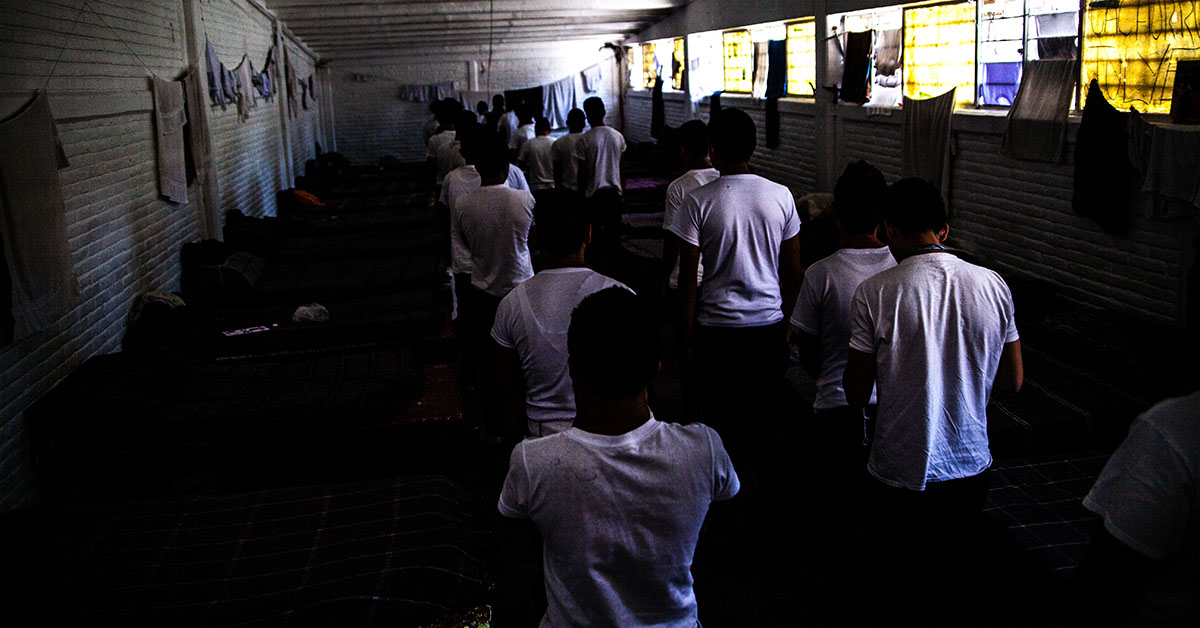The COVID-19 pandemic is a potential humanitarian disaster in juvenile detention centers around the world. 1.4 million children are locked behind bars, often in terrible conditions (detained for months or years waiting to see a judge, abused, extorted, living overcrowded, and under unsanitary conditions). They need to be in contact with their families to not only reduce depression and suicide, but to provide basic items not supplied by the government – food, soap, detergent, toilet paper and other essentials.
Now, in countless countries facing the COVID-19 epidemic, juvenile detention centers are going on lock-down, removing “non-essential” staff such as teachers, psychologists, and social workers, leaving only security staff, and barring families from visiting their children.
Juvenile Justice Advocates International is responding as fast as possible to:
- Publish recommendations to minimize health, mental health and human rights impacts for children (click here to read our recommendations).
- Engage decision makers in Mexico and across Latin America to implement these recommendations.
- Work directly with detention facilities to change policies and provide basic supplies such as cell phones for children to call families, soap for children to wash hands, and games and activities to replace lost programming.
- Coordinating data collection and with 20 law schools and 100+ law students to determine what policies governments are implementing in juvenile detention during the crisis.
Join us
Contribute to help support our COVID-19 response
Join our weekly webinars on COVID-19 and juvenile detention (Spanish Only)
Watch our March 26th Webinar on COVID-19 and Challenges to the Juvenile Justice System in Mexico – Spanish only:
Watch our April 2nd Webinar on COVID-19 and Actions for Courts and Youth Detention Centers – Spanish only:
Watch our April 9th Webinar on COVID-19, Humanitaria Crisis for Youth in Detention in Latin America – Spanish only:
COVID-19 Resources for Youth Detention
UNICEF – Children in detention are at heightened risk of contracting COVID-19 and should be released
Protecting Prison Populations from Infections Coronavirus Disease – ICRC
Annie E. Casey Foundation – Juvenile Justice Priorities During and After the COVID-19 Pandemic
(Spanish Only) Comisión Nacional de los Derechos Humanos – Medidas cautelares a todas las autoridades del sistema penitenciario nacional
Fair Trials – The Public Health Need to Keep People out of Detention – Practical Guidance
Penal Reform – Coronavirus: Healthcare and human rights of people in prison
(Spanish Only) Save the Children Mexico – Proteger los derechos de las niñas y niños ante la contingencia sanitaria por el COVID-19

